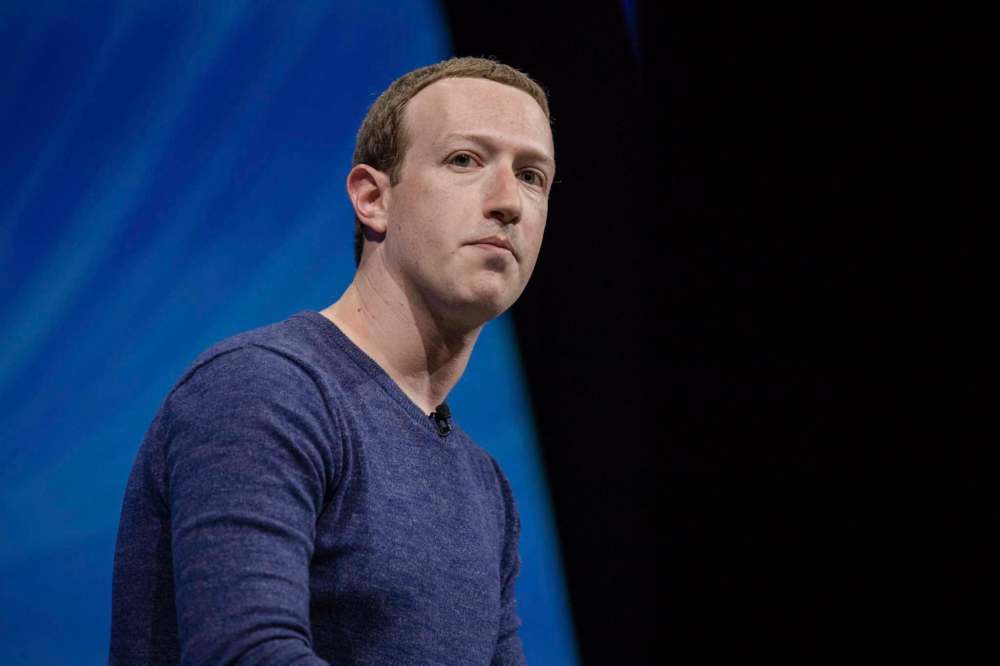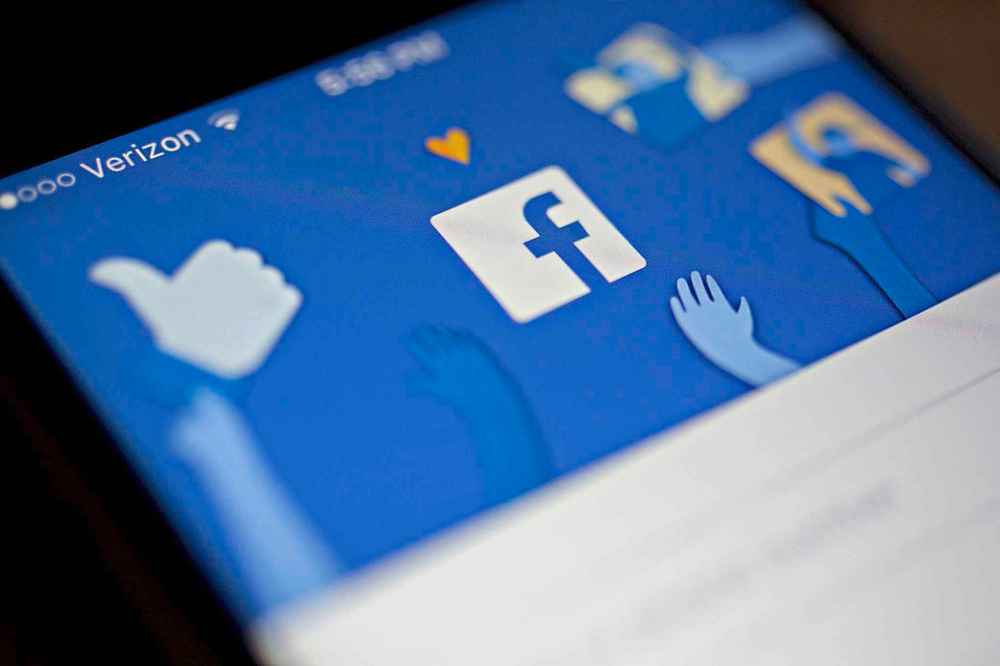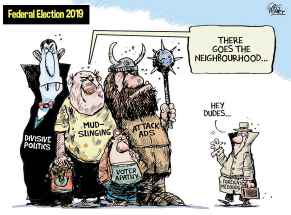Facebook obliged to clean up its act
Read this article for free:
or
Already have an account? Log in here »
To continue reading, please subscribe:
Monthly Digital Subscription
$0 for the first 4 weeks*
- Enjoy unlimited reading on winnipegfreepress.com
- Read the E-Edition, our digital replica newspaper
- Access News Break, our award-winning app
- Play interactive puzzles
*No charge for 4 weeks then price increases to the regular rate of $19.00 plus GST every four weeks. Offer available to new and qualified returning subscribers only. Cancel any time.
Monthly Digital Subscription
$4.75/week*
- Enjoy unlimited reading on winnipegfreepress.com
- Read the E-Edition, our digital replica newspaper
- Access News Break, our award-winning app
- Play interactive puzzles
*Billed as $19 plus GST every four weeks. Cancel any time.
To continue reading, please subscribe:
Add Free Press access to your Brandon Sun subscription for only an additional
$1 for the first 4 weeks*
*Your next subscription payment will increase by $1.00 and you will be charged $16.99 plus GST for four weeks. After four weeks, your payment will increase to $23.99 plus GST every four weeks.
Read unlimited articles for free today:
or
Already have an account? Log in here »
Hey there, time traveller!
This article was published 10/04/2019 (2435 days ago), so information in it may no longer be current.
How do you solve a problem like hate on Facebook?
On Monday, Facebook banned six Canadian groups and individuals for violating its Dangerous Individuals and Organizations policy by espousing white nationalist sentiments. The policy bans “terrorist activity, organized hate, mass or serial murder, human trafficking, organized violence or criminal activity.” Those banned include the Canadian Nationalist Front and its chairman Kevin Goudreau, Aryan Strikeforce, Wolves of Odin, Soldiers of Odin and Faith Goldy.
The move comes as the latest response to mounting pressure on the social media giant to crack down on hate speech, as well as graphic and extremist content in the wake of last month’s mass shooting in Christchurch, New Zealand, some of which was livestreamed on Facebook. Two weeks after the tragedy, Facebook said it would ban white nationalist, supremacist and separatist content in an effort to stamp out hate.

While it’s certainly commendable that Facebook is finally taking a more hardline stance on this issue, it seems both reactionary and, well, late. For years, people have been sounding the alarm about the ways in which social media can be weaponized and used to disseminate hate, as well as the increasing role it plays in the radicalization of the angry and impressionable. By now, it should be obvious that Facebook isn’t all baby photos and a way to keep in touch with people you barely knew in high school. It can, and does, incite real-world violence.
The spread of white nationalist and anti-Muslim and anti-immigration rhetoric has long been a wildfire out of control on Facebook, despite the fact the platform has detailed policies banning those things. When it comes to counteracting this kind virulent hate, policies are only effective if they are enforced. Facebook says it takes this problem seriously, but the enforcement of its community standards, to this point, has seemed like a long, tedious game of whack-a-troll. Hate always seems to find a way to thrive, and it’s not always overt.
Many social media platforms have mechanisms that allow users to report objectionable and disturbing content they come across, effectively deputizing users as moderators. But what happens after one hits send on a report is not always satisfying. Many posters who trade in hate speech walk very close to the line but never cross it, carefully wording their posts in dog whistles so they are able to circumvent the safeguards. So-called “borderline” content, too, is a scourge that many platforms continue to be hamstrung by.
That’s the problem with having reactive strategies instead of proactive ones. At this point, Facebook and other social media platforms are scrambling to put a genie back into the bottle and let there be no mistake: the rebottling is the responsibility of the corporations that profit hugely.
Facebook reported nearly US$6.4 billion in profit for the final three months of 2018, its most profitable quarter ever. It can afford to research and develop better ways to prevent its websites and apps from delivering hateful content into the homes of families around the world. If barring the providers of content that is unacceptable means lower profits, so be it.

In 2004, television viewers watching the Super Bowl were unexpectedly exposed to a brief view of the naked right breast of pop singer Janet Jackson. She said it was a wardrobe malfunction, and the exposure lasted only nine-sixteenths of a second before she covered up, but it was enough for the U.S. Federal Communications Commission to take action and fine CBS US$550,000.
Flash forward to 2019. The worst of the content streamed by Facebook makes Jackson’s “nip slip” seem innocuous.
If Facebook is unwilling to invest the amount required to clean up its act, governments should make it happen with fines and legislation. In the same way it was necessary to govern the CBS television network, it’s also necessary to govern Mark Zuckerberg’s social media network.









